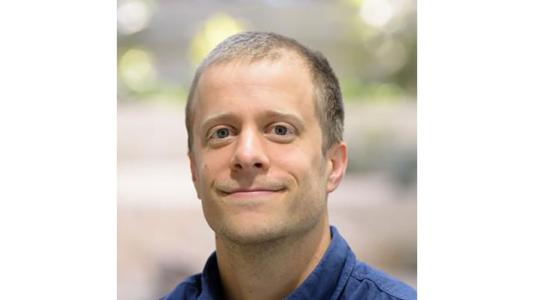
This was the first session of the U.S. Department of Energy Exascale Computing Project High-Performance Computing (HPC) Workforce Development Webinar series. The panel comprised four experienced mentors in HPC and STEM-related careers, who spoke on building the mentor/mentee relationship and following best practices in mentoring.
Larson’s research focuses on mathematical optimization methods that are motivated by real-world applications from areas including particle accelerator design, quantum computing and platoon scheduling. He is co-chair of the Argonne ACT-SO High School Research Program, a nine-month enrichment program that pairs Argonne scientists with Chicago-area African-American high school students in completing research projects in science, technology, engineering and mathematics.
The discussion began with a question to the panelists about whether an “Ah Ha” moment – a moment of sudden insight provided by a mentor or colleague – had a big influence on their career. Most agreed that more important was having someone help you see that what seemed impossible was indeed possible and then help you realize that possibility over the long term. Good mentorship is not accomplished in a single instance.
This led to a related question, how to help mentees conquer the “imposter syndrome.” Too often, mentees experience self-doubt or attribute their accomplishments to luck and worry that they will be found out. One suggestion was to foster an environment where mentees can passionately talk about things they love, interact with others and get reinforcement by contributing to the group. Larson noted that joint projects can make it clear that the mentee’s particular expertise is an essential part of the group’s success.
What factors are most important as a mentor to help contribute to the success of a mentee? Several ideas emerged: give mentees smaller roles in diverse projects, recommend mentees to others, and above all don’t wait for mentees to ask for help – provide opportunities for casual interactions such as an ice-cream break where people can meet and talk about anything from the local soccer match to a bug in their program that is driving them crazy.
Larson emphasized that mentoring is not the same as advising. The mentor may need to help a new mentee navigate the ropes – from finding where the pens are or the best bus schedule to determining the best server for computer work. How long does it take to mentor a person well? The answer from the panel was clear: as long as the mentor and mentee want the mentorship to last, which can mean simply a few months for a summer intern or six years for a doctoral student or even a lifetime from a mentor-turned-friend relationship.
One sticky question raised was how to help a mentee navigate a fraught situation such as a dispute with one’s colleague or group. Larson offered several strategies: listen, help the mentee cool down and then try to facilitate a conversation between the mentee and the other party. Certainly, people have different backgrounds and different expectations – whether cultural or professional – but everyone wants to succeed. Reviewing objectives can reestablish understanding.
The conclusions of the panel: Mentoring is not easy, it takes a big investment, and finding people willing to expend the effort is difficult. But seeing a mentee flourish can make the effort worthwhile.
For a video of the full panel discussion, see https://www.youtube.com/watch?v=vEkXsGlzEKM